Zochrot’s annual 48mm Film Festival brings together cinematic works dealing with the Nakba and the return of Palestinian refugees from different angles, in different places and times.
48mm is traditionally held around November 29, which this year marks the 69th anniversary of the UN Partition Plan. This plan has entrenched the concept of division and separation between Jews and Palestinians – it is a major milestone in the ongoing Nakba and has played a key role in turning hundreds of thousands of Palestinians into refugees.
The films screened in this, the fourth year of the festival are about refugeehood in the West Bank and Gaza, the internally displaced persons within the 1948 borders, and the Palestinian refugees in the diaspora. In that, they not only shed light on historical and contemporary events, but also encourage practical thinking on the return of Palestinian refugees, allowing us to reflect on the space in which we live and imagine its future differently.
Zochrot invites the public to take part in the 48mm events held on December 1-3, 2016 at the Tel Aviv Cinematheque and Jaffa’s Al-Saraya theater and watch one-off screenings of films from the finest world festivals.
Click here for continuous updates on the Facebook event.
Tickets may be bought through the website or at the box office
Program
Thursday, Dec. 1, 2016 at 20:00
Opening event, Cinematheque Auditorium 1
The festival opens with a screening of one of the major films of on the current war in Syria and its effects on the Palestinian Refugees.
The Shebabs of Yarmouk
(France/Syria 2013,82 min, Arabic & French w. English and Hebrew subtitles)
Director: Axel Salvatori-Sinz .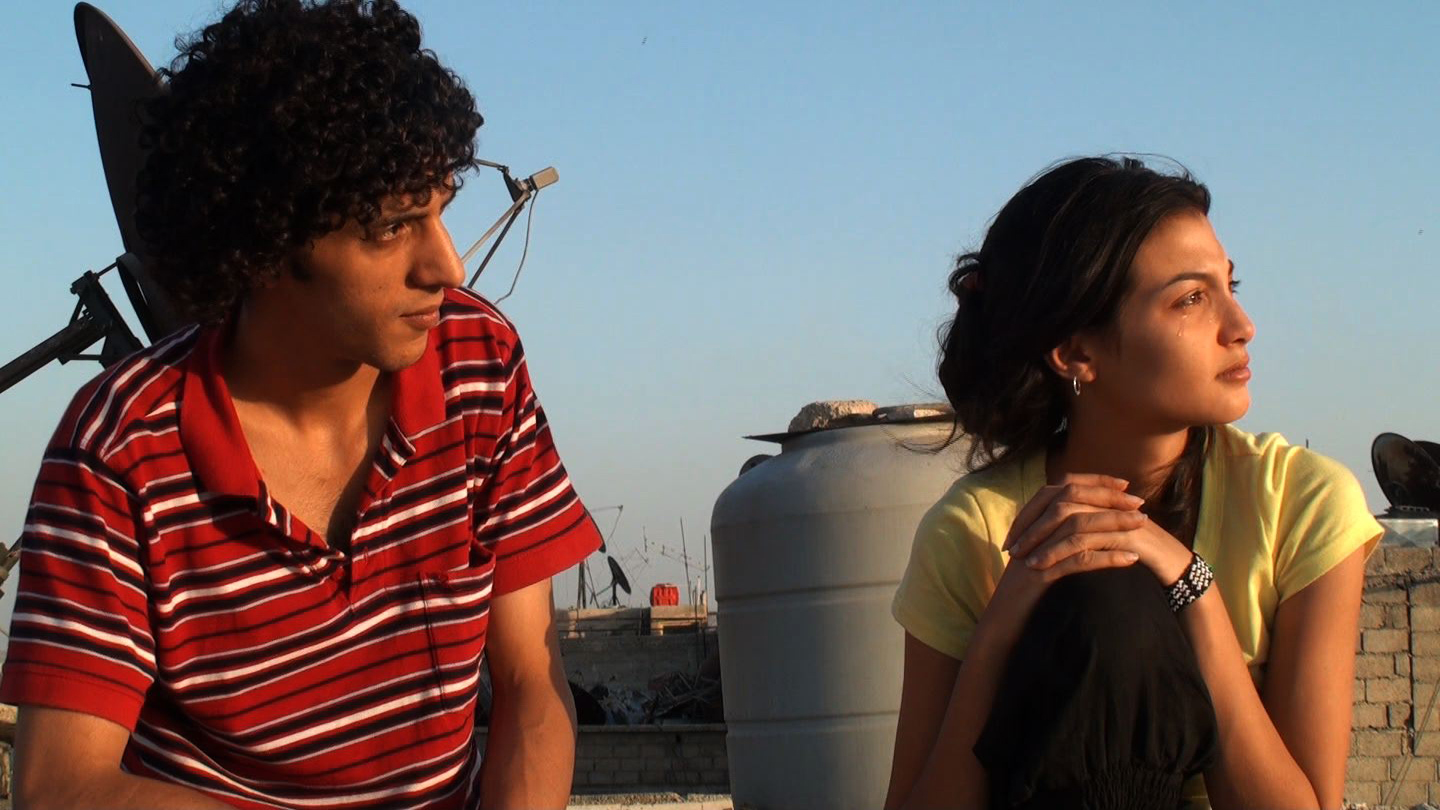 The Shebabs of Yarmouk is a documentary that follows a group of young men and women from the largest Palestinian refugee camp in the Middle East .Between boredom and hope, rebelliousness, passions and ideals, the film provides an intimate and witty glimpse into the lives of the third generation of Palestinian refugees in the diaspora.
The Shebabs of Yarmouk is a documentary that follows a group of young men and women from the largest Palestinian refugee camp in the Middle East .Between boredom and hope, rebelliousness, passions and ideals, the film provides an intimate and witty glimpse into the lives of the third generation of Palestinian refugees in the diaspora.
Dear Hassan
4 min, french with English and Hebrew Subtitles 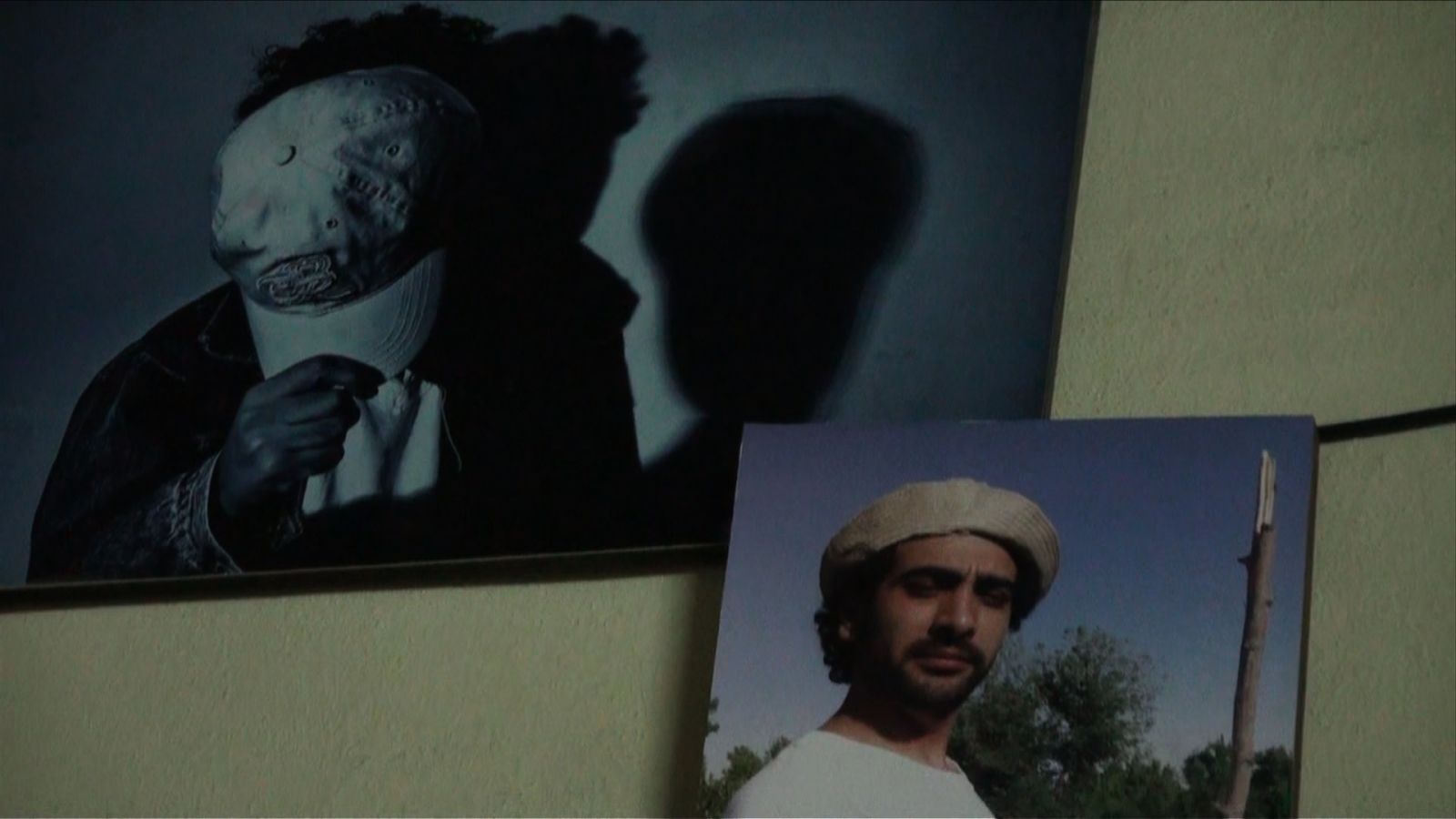
Shortly after The Shebabs of Yarmouk was made, the camp was besieged and heavily bombarded by Bashar Al-Assad’s troops, and became a battlefield in the Syrian war. In 2014, Salvatory-Sinz made the short film Dear Hassan – a visual letter of farewell commemorating one of those youngsters who died in the fighting.
____
Friday, Dec. 2, 2016 at 14:00, Cinematheque Auditorium 1:
Homage to Elia Suleiman
Between the two screenings, Dr. Ariel M. Sheetrit will give a short lecture on Suleiman’s cinematic language and the unique and humorist way in which he addresses the issue of internally displaced Palestinians.
Homage by Assassination (Tunisia/US 1992).jpg)
Director: Elia Suleiman
28 min , English and Arabic, w, English Subtitles
A short poetic film that takes place during one night at the time of the First Gulf War. Suleiman, who is writing a script in a New York apartment, tries to communicate with the world outside – and fails. Out of this tragicomic situation, the director extracts a poignant, sensitive and funny statement about diasporic identity.
The Time That Remains
France/Italy/Belgium/Palestine 2009
Director: Elia Suleiman
Actors: Salah Bakri, Ali Suleiman, Menashe Noy, Elia Suleiman, Samar Tanous
(116 min, Arabic & Hebrew w. Hebrew and english subtitles)
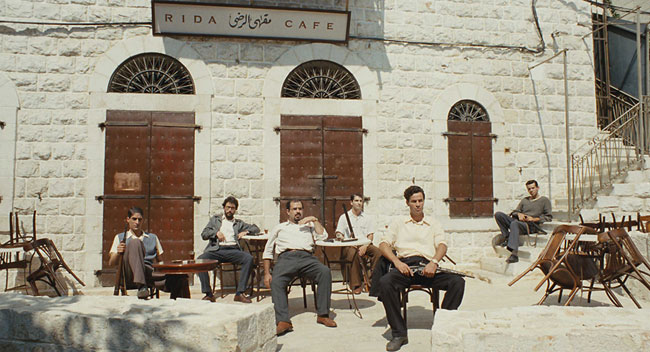 The Time That Remains is a semi-autobiographical film that spans four different historical periods since 1948. It is inspired by the personal diaries of Suleiman’s father, who documented the family’s history since the days he was active in the Palestinian struggle of 1948, as well as letters by the director’s mother to family members who have been forcibly deported from Palestine and are unable to return to it since. In 2009, the film won the Jury Grand Prize of the Asia Pacific Screen Awards as well as the Haifa Film Festival Jury Award.
The Time That Remains is a semi-autobiographical film that spans four different historical periods since 1948. It is inspired by the personal diaries of Suleiman’s father, who documented the family’s history since the days he was active in the Palestinian struggle of 1948, as well as letters by the director’s mother to family members who have been forcibly deported from Palestine and are unable to return to it since. In 2009, the film won the Jury Grand Prize of the Asia Pacific Screen Awards as well as the Haifa Film Festival Jury Award.
-----
Friday, Dec. 2, 2016 at 20:00, Al-Saraya Theater, Jaffa
Panel and screenings: Palestine and the Nakba in the Eyes of Syrian Cinema.
Syrian filmmakers have been among the first to address the Palestinian Nakba and its implications.For them, cinema was a major instrument in the struggle against historical injustice . In the event, we will review Syrian cinematic works and their diverse representations of the Nakba. Panel members: Raji Bat’hish,Saleh Dabbah, Laliv Melamed and Yael Messer.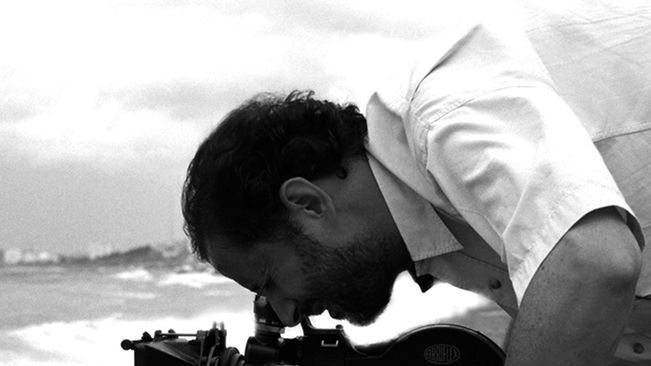
A Plate of Sardines
(Syria, 1997) Director: Omar Amiralay (17 min, Arabic w. English subtitles)
Together with his colleague Muhammad Malas, the director visits Quneitra, the former capital of the Syrian Golan Heights occupied by Israel in 1967 and returned to Syria as part of the Agreement on Disengagement in the aftermath of the 1973 war. In his visit in the abandoned town, Amiralay raises poignant questions regarding its painful history as well as cinema’s political role.
______
Saturday, Dec. 3,2016 at 12:00, Cinematheque Auditorium 4
Salata Baladi (Egyptian Salad, Egypt/Switzerland/France 2007)
Director: Nadia Kamel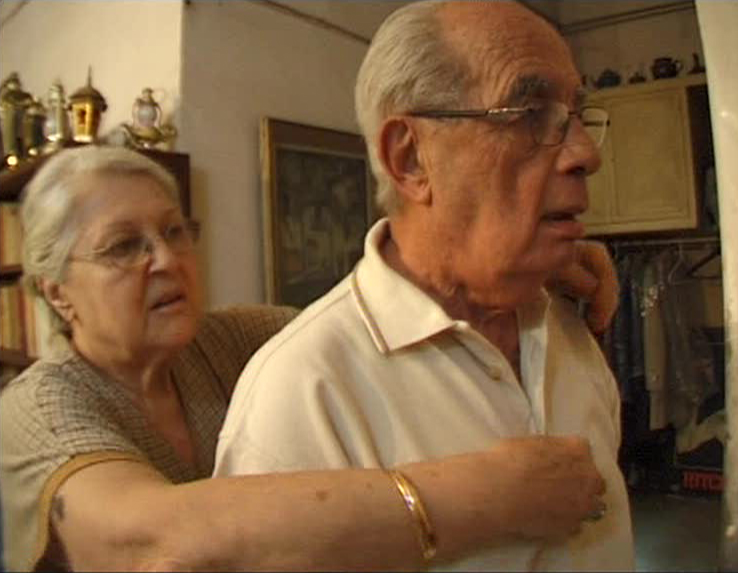
(106 min, Arabic, Italian, French & Hebrew & w. Hebrew and English subtitles)
This moving documentary by Egyptian filmmaker Nadia Kamel deals with the history of her family, which represents an extraordinary combination of cultures and religions. Kamel accompanies her young brother Nabil in the process of discovering his family members who have dispersed in various places in the world as a result of the Nakba.
The director meets her different family members and even brings together relatives who have not seen each other over sixty years. The film won Best Feature Documentary Award at the Mumbai International Film Festival, as well as the Noor Award at the San Francisco Arab Film Festival, both in 2008.
The screening will be preceded by a lecture by Eyal Sagui Bizawe.
_______
Saturday, Dec. 2, 2016 at 14:30, Cinematheque Auditorium 4
Ambulance (Norway/Palestine 2016)
Director: Mohamed Jabaly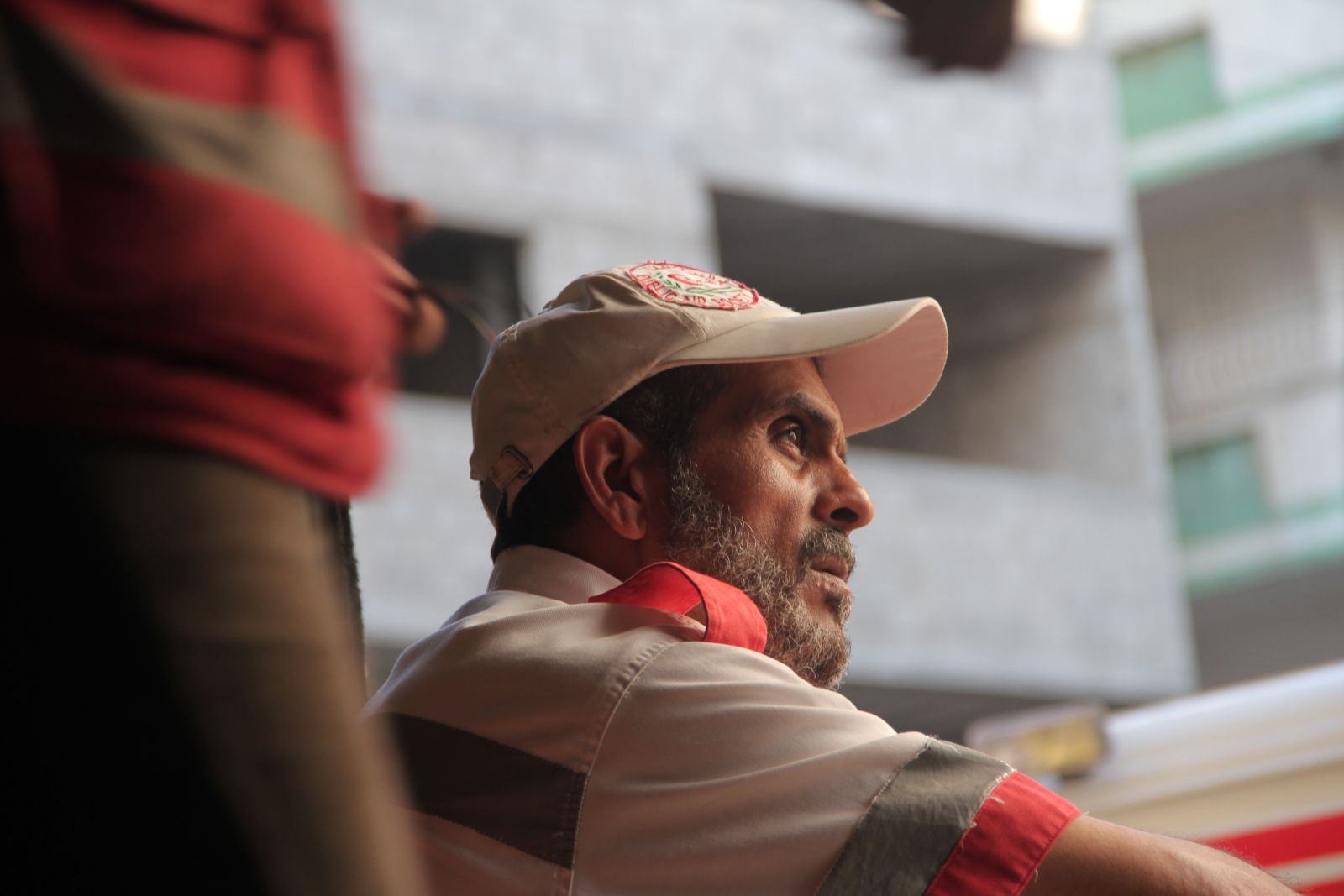
(109 min. Arabic w. English and Hebrew subtitles)
Gazan documentary filmmaker Muhammad Jabaly joins an ambulance crew during the recent Israeli attack on Gaza in 2014. From an external documentarian, he turns into an integral part of the crew, accompanying its members in various difficult moments of their dangerous and heart-rending work. During a dark time of chaos, the film evokes the trauma but also the hope which is such a rare commodity in Gaza.
The screening will be preceded by Dr. Gerardo Leibner’s lecture about the history of the relations between Gaza and Israel.
Saturday, Dec. 3, 2016 at 21:00, Cinematheque Auditorium 4
Concluding event: Infiltrators (Mustaslilun, Palestine/Lebanon 2013)
Director: Khaled Jarrar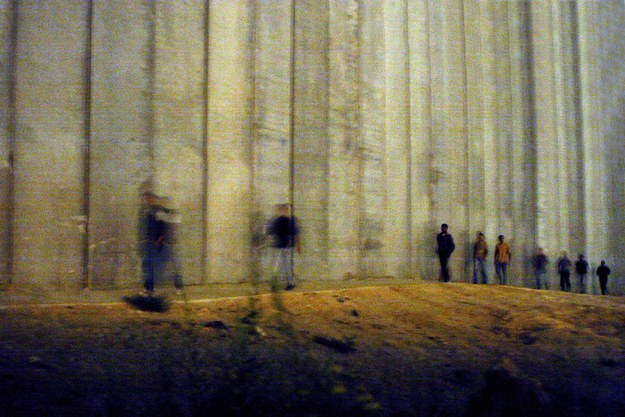
(70 min. Arabic w. Hebrew subtitles)
Khaled Jarrar’s multiple-awarded documentary film accompanies several Palestinians in the West Bank as they try to bypass the Separation Wall to find work, pray and meet their loved ones. The film exposes the adventurism of various attempts to find a rift in the wall. The film won the Jury Special Prize, Dubai Film Festival 2012; Jury Prize, Malmö Arab Film Festival (MAFF), Sweden, 2013; and Best Documentary Film, Al Ard Doc Film Festival, Cagliari, Sardinia, 2013.
________
Address and tickets
Tel Aviv Cinematheque, 2 Sprinzak St., Tel Aviv
Tickets may be bought through the website or at the box office
Al-Saraya Theater, 2 Mifratz Shlomo St., Old Jaffa (near the Hammam)
Tickets may be reserved via 48mm@zochrot.org or on the phone:0528826868/ 0547566247
For further details:
www.zochrot.org
48mm@zochrot.org
(0)3-6953155



